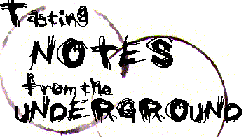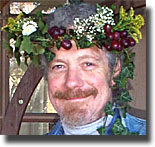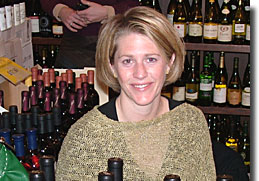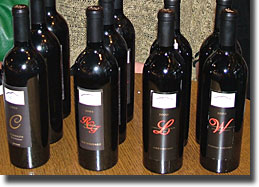|
|
 |
|
||
|
a 
Part 1 | Part 2
When the winemaker's position opened up in 2002, Fisher's Consulting Winemaker Mia Klein suggested that Whitney was up to the challenge and that she should consider taking it over, and after giving the matter serious thought, she did. "I really did have to think about it," she recalls. "It's a lot of responsibility, and at the end of the day, you're really holding the whole project together. So I took a couple of weeks to think, 'Is this really what I want to be in charge of and take on the responsibility for?' And I went for it, and I'm so glad I did. I have learned so much, and it's been very rewarding." Besides working closely with the formidably talented Klein, a Tony Soter protégé whose credentials include consulting with the likes of Viader, Spottswood, Araujo, Dalla Valle and her own label, Selene Wines, Fisher recently hired Laura Harris as Assistant Winemaker, and is very enthusiastic about the great team effort that's being put forth. "Right now, we're blending '03s and each coming up with our own ideas for blends, and then we blind taste everybody's and we've learned so much from each person coming to the table with what they think. It's really been a great experience and we just have a blast." Fisher Vineyards has been doing extensive replanting over the last several years, particularly in the famous Wedding Vineyard, so named because it was the site of Fred and Juelle Fisher's nuptials in 1975. All but two acres were ripped out after the 2001 harvest, due to phyloxera, and redevelopment began in the spring of '02, under the direction of renowned vineyardist David Abreu. Employing closer spacing, low vigor rootstock to encourage the production of smaller, more highly concentrated fruit, planting Cabernet Sauvignon Clone 337 and other new Cabernet Franc and Petit Verdot clones and even changing row direction, the hope and expectation is that ultimately, the vineyard will produce even better fruit than before. "It's been really exciting to work with David and some of his ideas," Whitney said, "and also talking to a community of winemakers and vineyardists in the area, particularly Françoise Peschon at Araujo, who has been so supportive; she and I are talking a lot about bio - dynamic farming. We're moving into the more sustainable organic practices in the vineyard. I just went to France in December, and did a lot of research with Laura Harris and my brother Rob. I had a great time, and really walked vineyards and talked to vineyardists there, and of course, tasted a lot of great wines. I think that's really where our focus is, and for great reasons. Some of the vineyards that we're working with have huge potential; we've worked with them for over 30 years, and because of that, I think we have a real advantage in these replants, because we've already experienced having vineyards in the area for 30 years, and going into them for the second time having so many things that we're going to add, that I think, again, will just take the vines planted and the fruit to another level. In the end, that's actually what we're doing, farming, and that's the most important thing, getting that fruit to the peak phenolic ripeness, and that's really the skill, I think, that winemaking is, that and blending. Those are the two focal points of great wine, and we're honing in on that. "'05 will be the first harvest, so you never know what you'll get and we are of the opinion that we work with the wines over time and establish that consistency that it takes to have a single vineyard be a single vineyard. You don't want to just put something out there for the sake of putting it out there; we really want it to mean something, and so we will be working and evaluating that fruit as we go along."  MORE====> MORE====> |
||||
|
Other Recent Wine Explorations Giorgio Rivetti & the Wines of La Spinetta Back to Interviews & Profiles Index
Back to the
Underground
Index
|
||||



